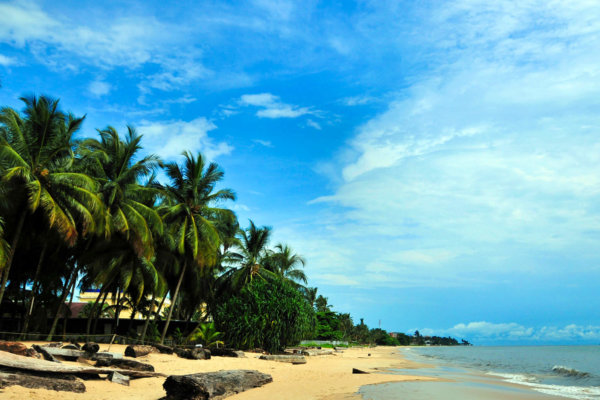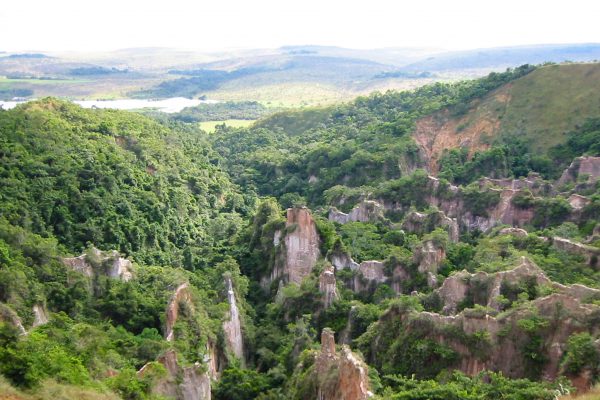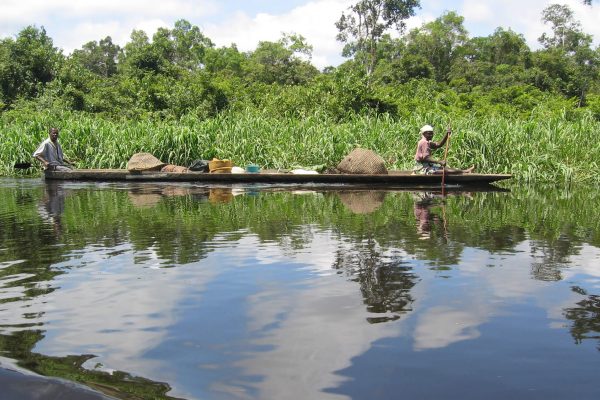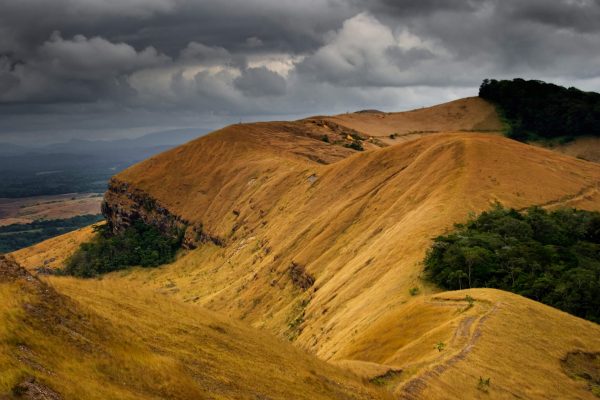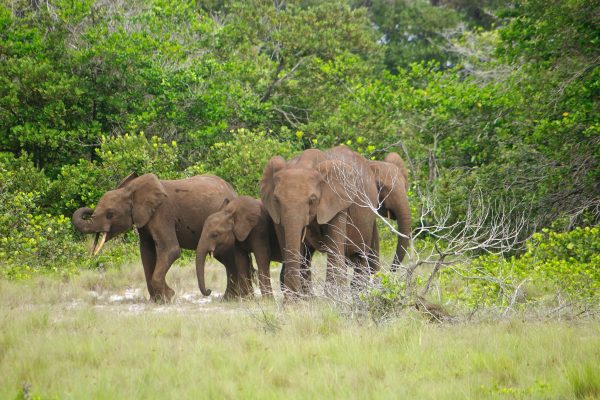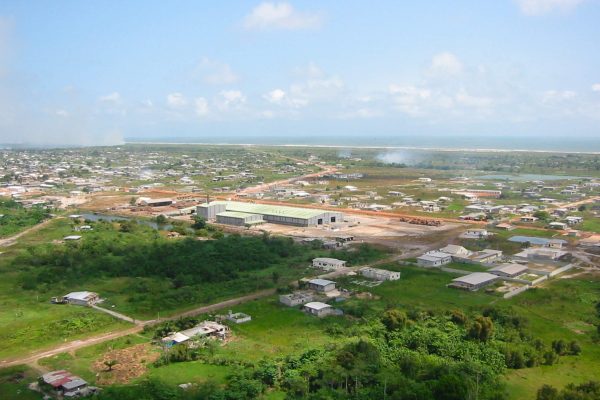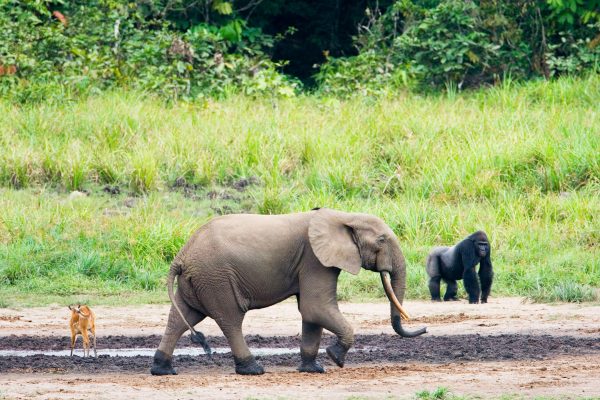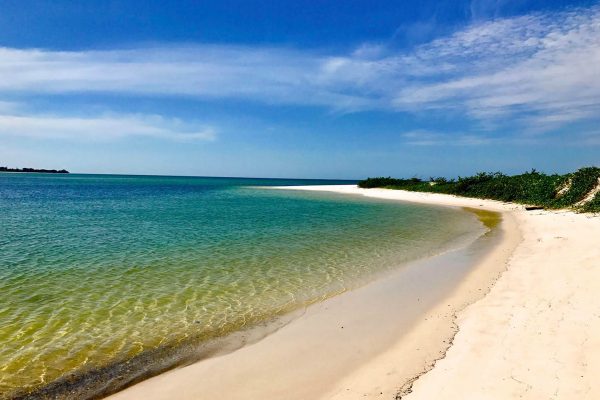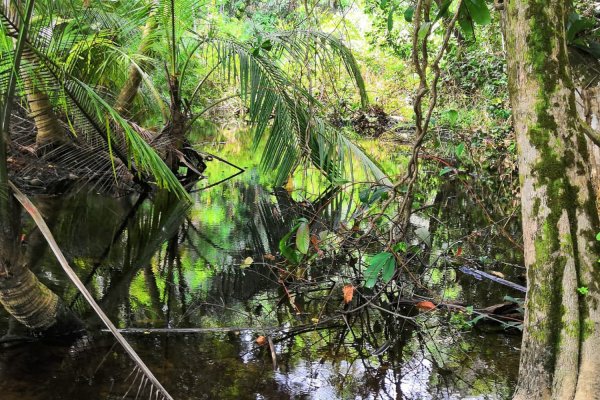For better website experience please use modern browsers like Chrome, FF or IE11+
Discover Gabon

Covered with 80% of forest, Gabon hosts an incredible flora and fauna. The country has no less than 13 national parks, including La Lopé, a World Heritage Site. With these natural reserves, Gabon is one of the most important green lungs of the planet. Wild nature lovers will be captivated by the biodiversity that the territory has to offer. Beyond its lush vegetation, Gabon has idyllic beaches with coconut palms and fine sand while being the territory of many marine mammals. Among them, the humpback whale and the dolphin participate in marine life. The economy, based mainly on hydrocarbon exploitation, has boosted the cities and contributes a lot to the country’s development. Fly to Gabon, a land that blends traditions and modernism. From the hustle and bustle of its capital to the giant tropical forests, Gabon is a popular place for eco-tourism and business travel. Discover more about this exceptional country, which will certainly win your heart !
Identity card
Hello, my name is Gabon.
Official long form: Gabonese Republic
Government type: Republic
Area: 267,667 km2
Capital: Libreville
Main cities: Libreville, Port-Gentil, Franceville
Regions: Estuary, Upper Ogooué, Middle Ogooué, Ngounie, Nyanga, Ogooué-Ivindo, Ogooué-Lolo, Ogooué Maritime and Woleu Ntem.
Official language: French
Currency: CFA franc
Population: 1.8 million (UNDP 2018)
Density: 6.7 inhab/km2
Religions: Christian (85%), Islam, Animism
Some key dates:
1471: Gabon is discovered by the Portuguese
1849: Foundation of Libreville, the capital
1886: Gabon becomes a French colony
1960: Gabon’s independence is proclaimed
1961: Léon Mba became the first president of Gabon. He remained the Head of the country until his death in 1967.
Climate and Weather
It’s nice and hot!
Gabon enjoys an equatorial climate. The weather is warm, with an average annual temperature of 26°C, and humid, with a high humidity level (85 to 100% in the rainy season). The climate is more temperate near the coast due to sea winds.
The country alternates wet and dry seasons:
- A small dry season from mid-December to mid-February, with little rain and clear skies
- A great rainy season from mid-February to mid-May, with very heavy rains
- A long dry season from mid-May to mid-September, with no rain and mild temperatures
- A small rainy season from mid-September to mid-December, with alternating sunshine and rainfall
Best period to go? Ideally, you should visit Gabon in the dry season, from June to September. You will be able to travel more easily, especially to discover national parks and reserves.
Natural Resources
Enjoy the beauty of a true, wild and fragile nature!
GEOGRAPHY
Crossed by the equator, Gabon is located in Central Africa. This country bordered by the Atlantic Ocean shares its frontiers with Equatorial Guinea to the northwest, Cameroon to the northeast and the Republic of Congo on its entire eastern and southern side.
LANDSCAPES
Gabon’s territory offers a variety of landscapes. Plains spread along the coast while savannah extends to the east and south. When you go inland, the relief changes and gives way to mountain ranges. Mount Iboundji is the highest peak in the country, with its 1575 metres high.
FOREST
Gabon is covered with 80% of forest which is composed of different areas such as mangroves, swampy and submerged forests or mountain forests. Nearly 8,000 plant species have been identified.
ANIMALS
Gabon’s fauna is particularly rich. In the plains, elephants, buffaloes and antelopes live in harmony. In the forests, vipers, pythons, porcupines, turtles, baboons, makis, toucans and parrots cohabit. Other species prefer riversides such as crocodiles and hippopotamus.
RICHNESS OF THE SOIL
Gabon has a very rich subsoil. The country has made of oil, natural gas, manganese and uranium exploitation its most important activities. Gabon also works in wood and minerals industry.
Culture
Discover traditions of Gabon
ETHNIC GROUPS
Gabon has nearly fifty ethnic groups, the pygmies is the oldest one. The several ethnic groups are spread over the territory. The biggest ones in terms of numbers are the Fang (32%), followed by the Mpongwe (15%), the Mbédé (14%), the Punu (12%)…
MASKS
Masks have an important place in the ethnic groups life. Each group has its own masks, dedicated to different ceremonies.
DANCE
Gabon’s traditional dances reflect the diversity of the ethnic groups and are closely linked to the rites, like the initiatory rite of Bwiti. Both ritual and recreational, they remind the close link between real world and sacred.
MUSIC
Gabonese music is characterized by pop and folk styles carried by artists such as Pierre-Claver Akendengue, Patience Dabany, Annie-Flore Batchiellilys, Vickos Ekondo or Oliver N’Goma.
Gastronomy
Taste some traditional food with a local beer!
In Gabon, eating habits vary according to the regions and lifestyles of their respective tribes. But the population mixing brings out dishes common to the whole country. Let’s talk about few of them:
- Crabe Farci is a delight for Gabonese people. The crab meat is removed and mixed with chopped shrimps, tomatoes, onions, garlic and chili pepper.
- Odika, also known as “indigenous chocolate”, is a brown sauce made from the fruit of the acacia tree, that oddly looks like a wild mango and tastes like cocoa. This sauce goes well with all kinds of fish, shellfish and meat.
- Smoked chicken Nyembwe, whose sauce is made with the pulp of palm kernels, is served with ripe bananas and grated manioc or rice.
- Cassava leaves are a key food in Gabon’s diet. The leaves, finely crushed and boiled, are usually served with smoked fish.
- Nkumu: the leaves of this small liana are very rich in protein. They are cooked with fish and vegetables in a salted broth.
- The Coupé Coupé of beef is a famous street food made of small pieces of braised meat served in bread. Another speciality to take away is the Nikes, braised chicken skewers.
Gabonese people are fond of sodas, and also drink the national beer called Régab. The palm wine, stronger, is also appreciated.
Active Life
Behave like a local!
Some tips for living in Gabon:
- When you go out for a drink and dinner or when you take a taxi, giving a tip is not mandatory but will always be appreciated.
- Always ask permission before taking pictures of people.
- For any purchase of souvenirs, do not hesitate to bargain, it is part of the custom. At the market, it’s even mandatory!
The most beautiful sites to visit
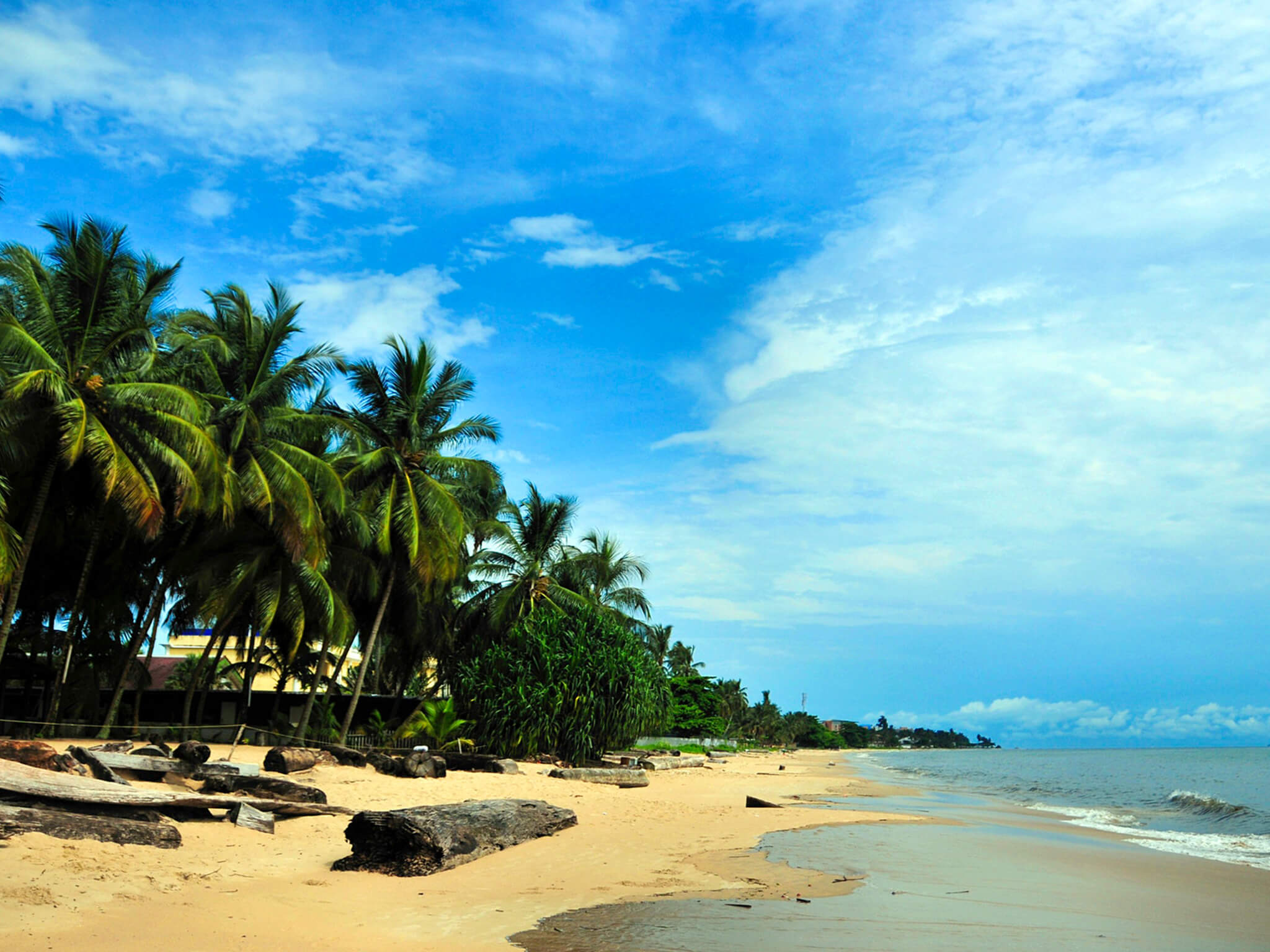
Libreville and its surroundings
In front of the sea, Libreville is crossed by the Boulevard Triomphal and its several modern buildings. The Gabonese capital surprises you by the diversity of its cityscapes which mixes opulent avenues, trendy seaside and popular districts. Start your visit with the Museum of Arts and Traditions; its collection of masks, reliquaries and musical instruments will teach you more about the rites and traditions of the country. In the heart of the city, the Saint-Michel church of Nkembo is an atypical monument with its carved wooden pillars and pictorial frescos. On the beachfront, next to the former presidential palace, don’t miss the Statue of Liberty! Created by the artist Minko Minzé, this stele commemorates the end of the slave trade in 1849: to be seen for its historical interest. Discover the diversity of the Gabonese capital by walking through the alleys of its Mont-Bouët market, feeling the atmosphere of its neighbourhoods or taking an open-air stroll along the sea.
For more information about Libreville, consult the section Stay in Libreville
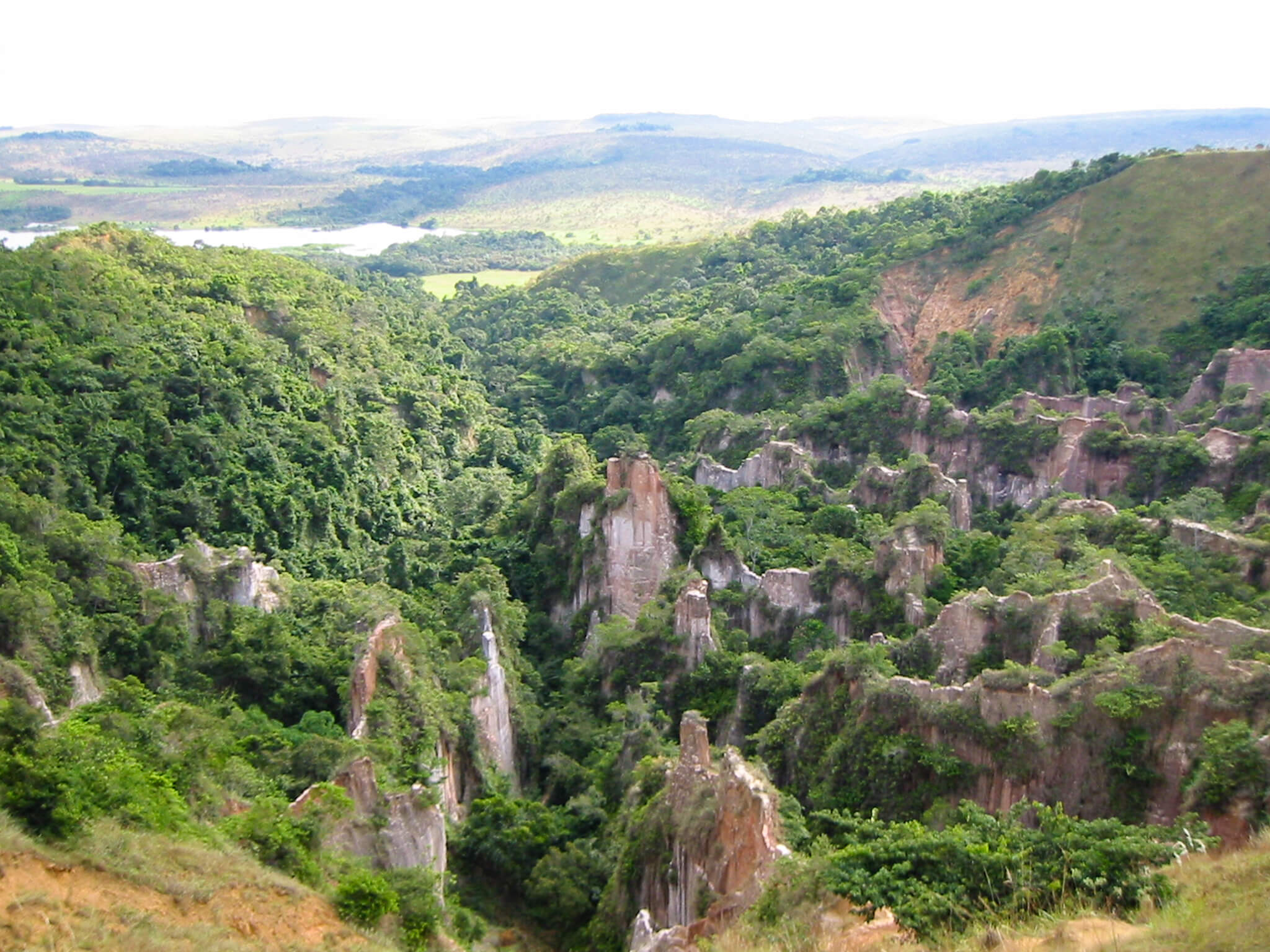
Franceville and the Plateaux Batéké region
In southeast Gabon, Franceville is one of the four biggest cities. Thanks to its University of Science and Technology, Franceville brings together many students from all over Africa and is modernizing. Mingle with the local population in the central market, you will discover a joyful bric-a-brac with goods of every kind. The city, located in the province of Haut-Ogooué, is the ideal starting point to visit the unique landscapes of the Batéké plateaus. Discover this ancient volcanic area covered with savannah and rainforests! In the national park, on the border with Congo, the landscape is made of plateaus and hills, spanned by valleys and streams. In its heart, the pink, white and green canyons, carved by erosion, will leave you speechless. Stop for a moment in front of these magnificent panoramas, you will understand how much the biodiversity of the region is an invaluable treasure.
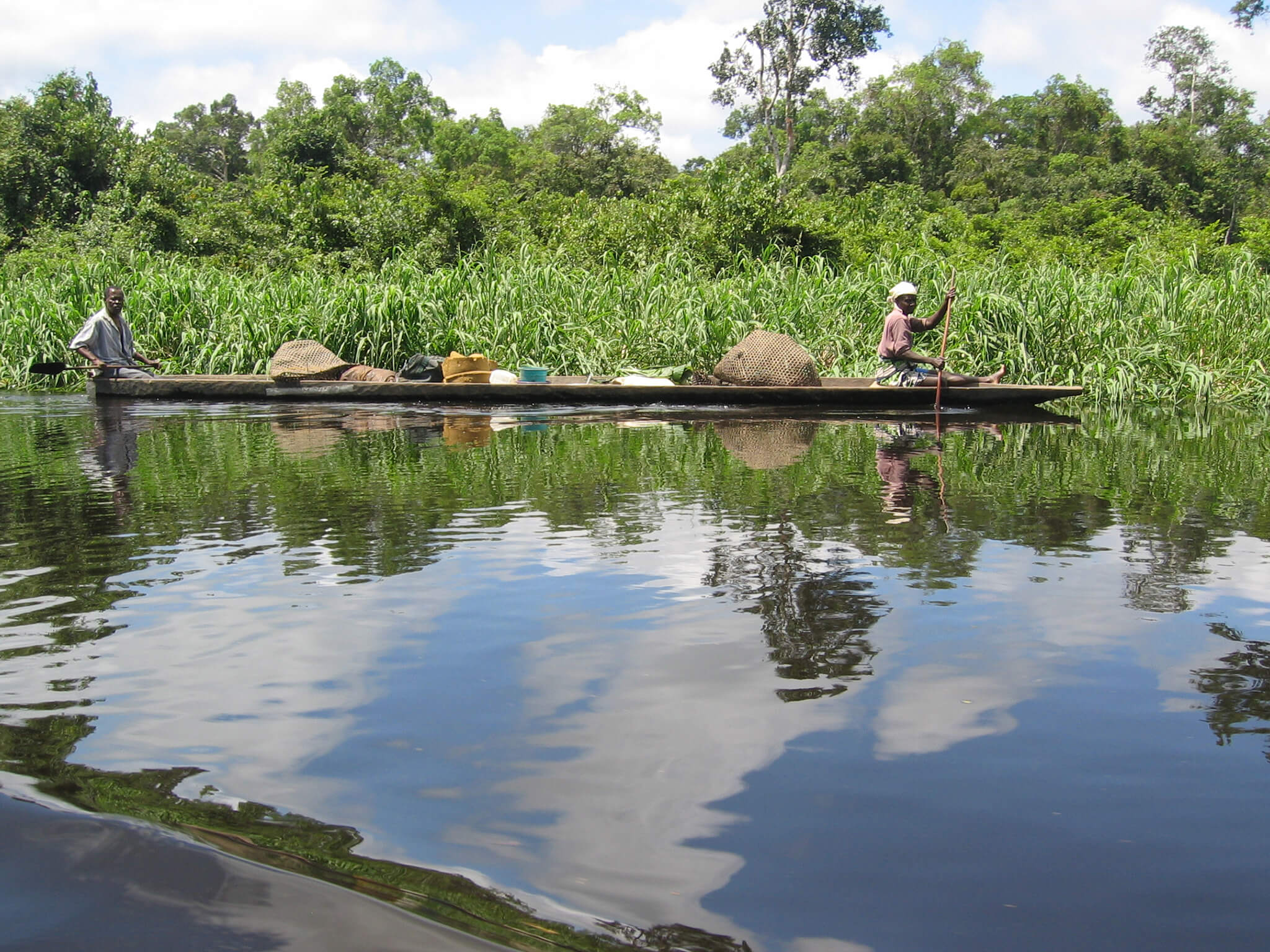
Lambaréné and the Lake region
On the banks of the Ogooué River, west of Gabon, Lambaréné is a welcoming city where people often travel by canoe, to go down or up the river. Discover the history of its hospital, the most famous place of the city. Created in 1913 by Albert Schweitzer, who got the Nobel Peace Prize, it helped to treat the population suffering from chronic diseases such as leprosy. After this historical break, go to the sublime region of lakes! To visit these stretches of water, ask for a canoeist who will help you discover the site over water. Going up the Ogooué, contemplate the forest along the river, and the mangroves whose gigantic roots plunge elegantly into the water. The six lakes are places of total tranquillity. Small or huge, each one has its own charm. Keep your eyes open, the lake region is the home of hippopotamus! You can see them mainly in the dry season, when the water level is low.
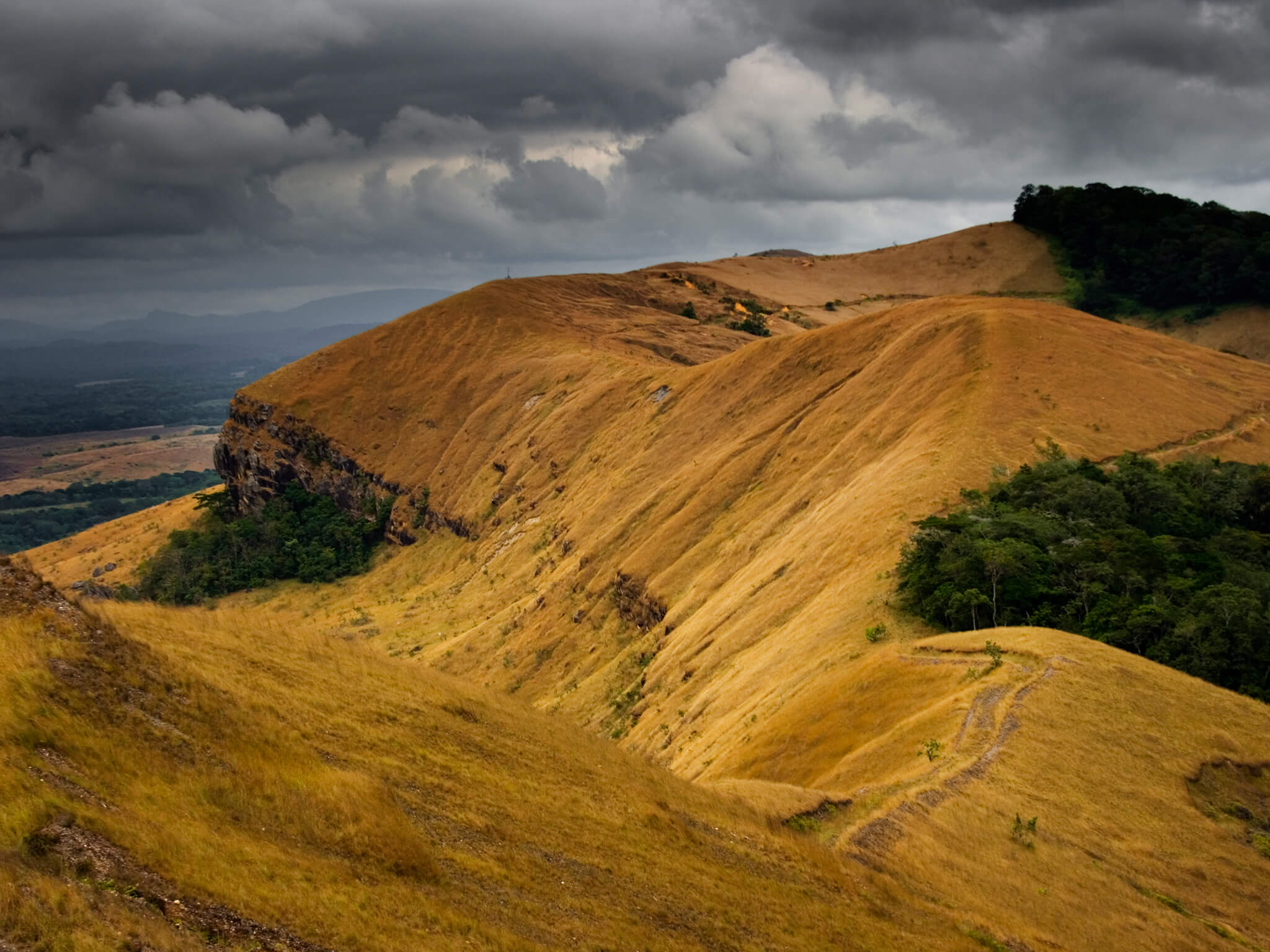
Lopé National Park
In the heart of Gabon, in the province of Ogooué-Ivindo, Lopé National Park is an emblematic site of the country, the first to have been protected. And the reason is obvious, with its 5,000 km2 of savannah and forest, the park is home to many mammals. There are no less than three elephants per square kilometre, incredible, isn’t it? The territory gathers a large community of mandrills, the primates that inspired Rafiki’s character in the famous movie The Lion King. Gorillas, chimpanzees and buffaloes also live in these lands, as well as hundreds species of birds: it is a precious sanctuary for African fauna. In addition to its exceptional plant and animal species, Lopé Park is a major archaeological site in Africa. Cut stones and rock engravings dating back more than 400,000 years have been found there, confirming a prehistoric human occupation. Discover the invaluable treasures of this park, which has been listed as a UNESCO World Heritage Site since 2007.
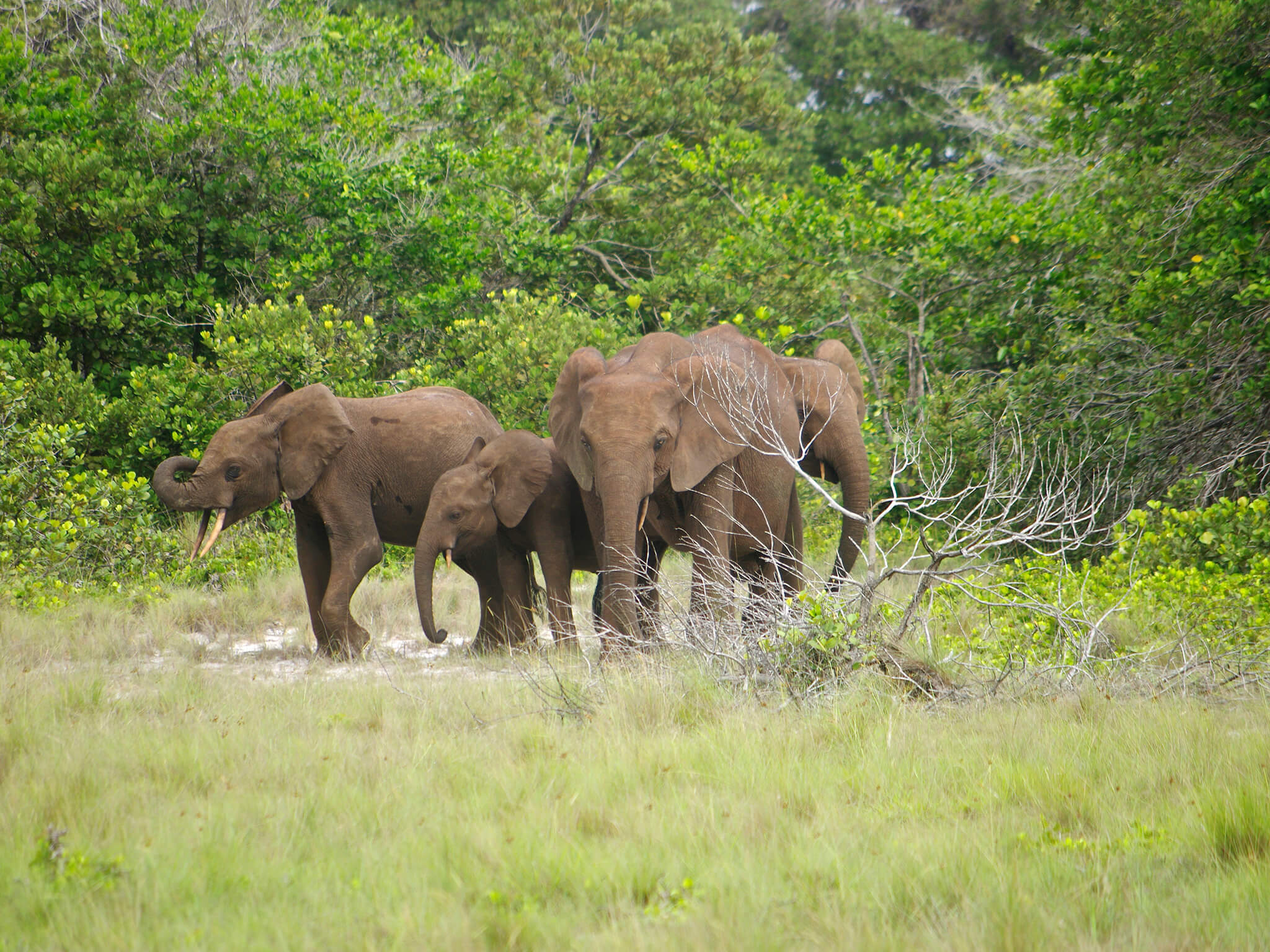
Loango National Park
In western Gabon, not far from Port-Gentil, discover a unique land with a mosaic of landscapes. Beaches, lagoons, mangroves, marshes, savannahs and forests are the magical backdrop of Loango National Park. This nature reserve stretches along the Atlantic Ocean. Watch the incredible show of sea turtles climbing out of the water to lay eggs on the sand. The preservation of these lands has allowed many threatened species to prosper, such as the hippopotamus, the elephant, the buffalo, the leopard and the gorilla. From the beach, you may have the chance to see the tail of a whale or dolphins! The landscape is also made of swamps, which are home to manatees and many sitatungas, a species of antelope that is very comfortable in the aquatic environment. The park’s incredible ecosystem is based on a fragile balance, which makes it so rich and beautiful.
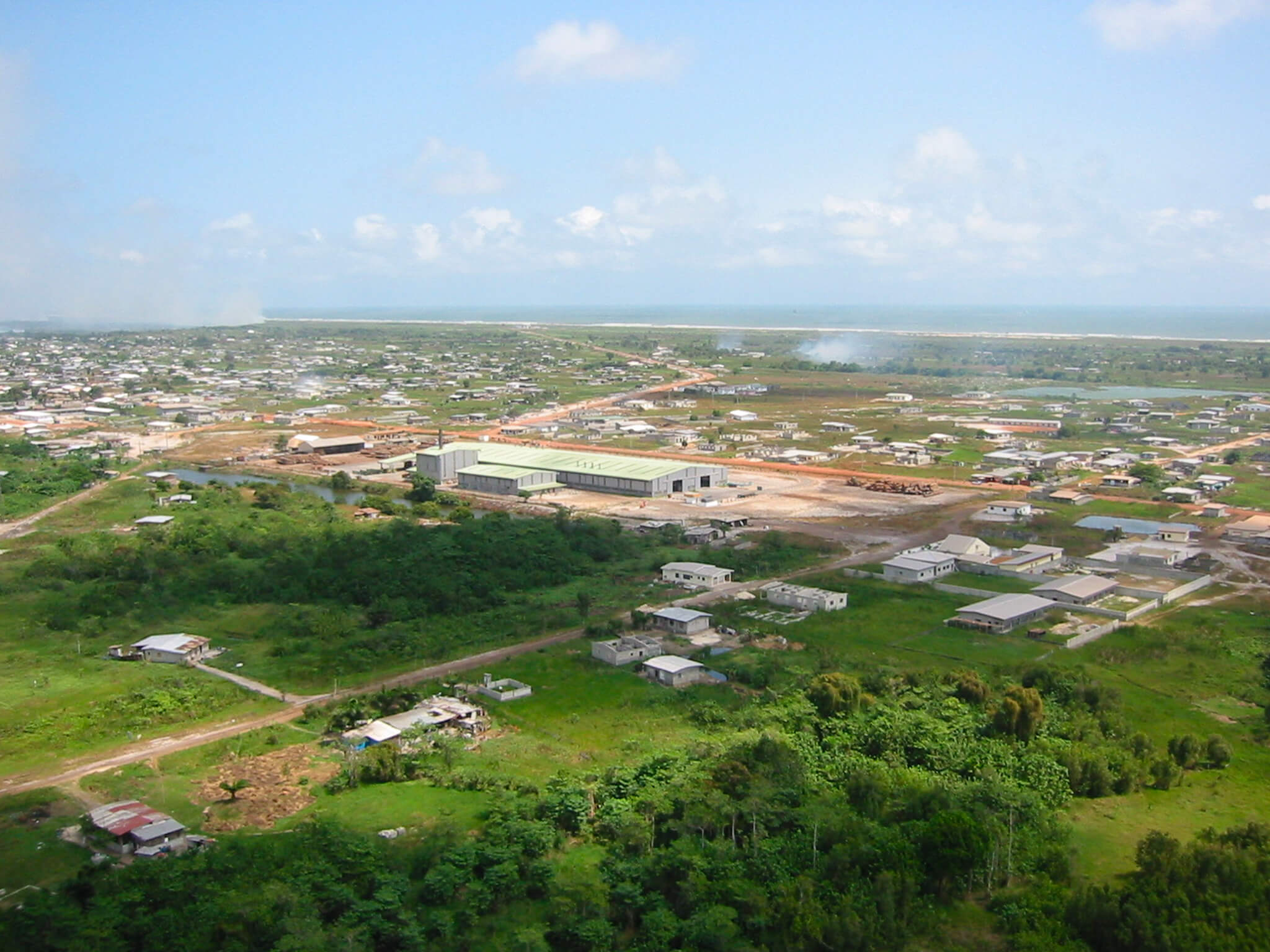
Port-Gentil on Mandji Island
South of Libreville, Mandji Island goes a little beyond the territory, like an arm open to the sea. Discover the sublime bay of Cap Lopez! The site has been marked by the history of slavery, so people go there on pilgrimage to remember the tragic past. The island offers beautiful beaches such as the coconut bay, which will charm you with its stretch of white sand and clear waters. The Cape is famous for its exceptional visitors: humpback whales settle in the area between June and September. Go on a boat trip to meet them! Port-Gentil was built on the island, drained by a lot of canals. Identified as Economic capital of Gabon, the city has developed around the port and its petroleum activity. There, you will find architectural gems, sometimes influenced by the colonial period. Explore this dynamic city, nestled in the heart of unique natural resources.
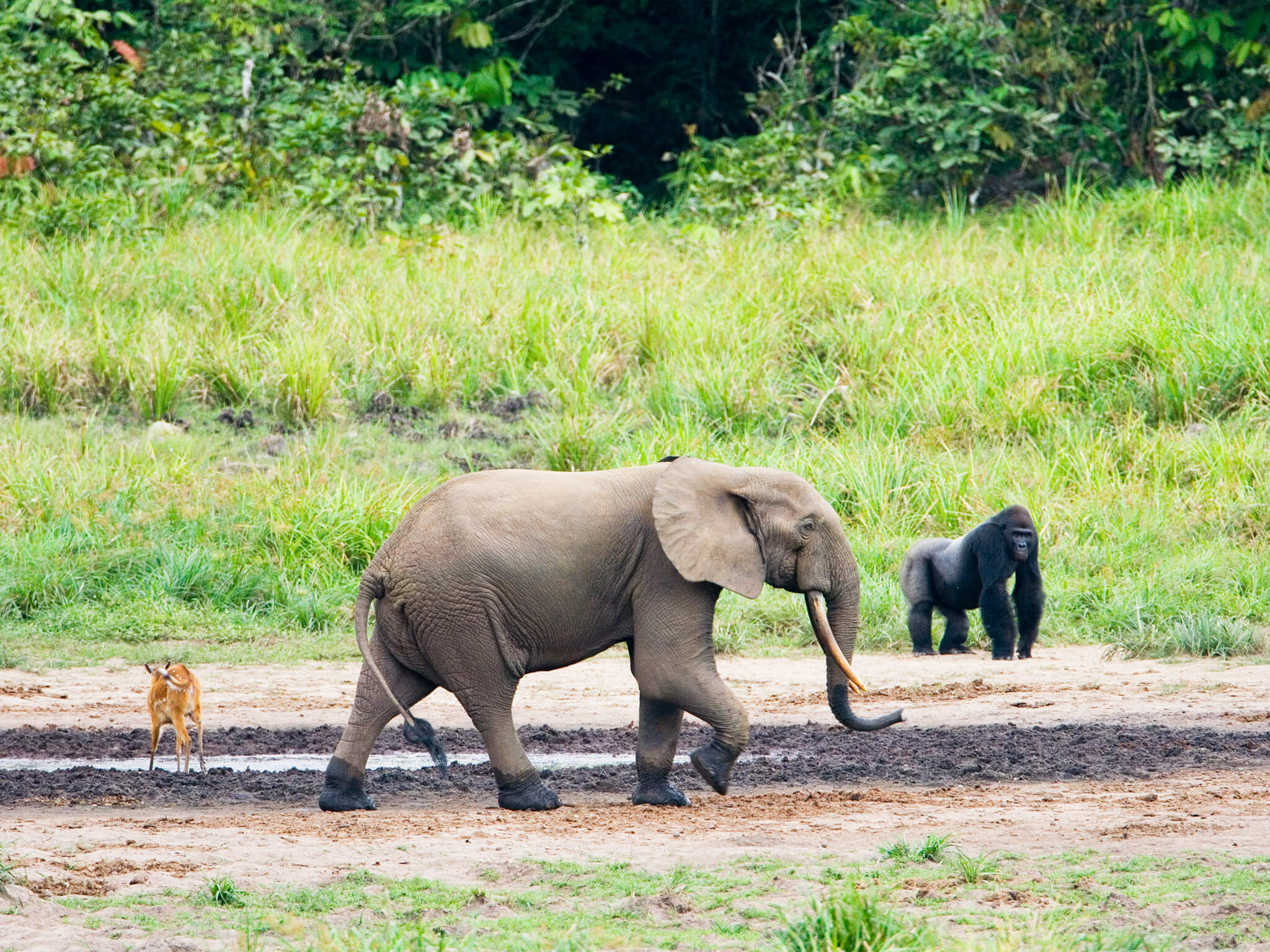
Ivindo National Park
With its unspoiled natural landscapes, Ivindo National Park is an invitation to contemplation. Still untouched by human presence, the forests that cover these lands are very old. Crossed by the equator, the park extends over 3,000 km2, between the provinces of Ogooué-Ivindo and Ogooué-Lolo, in central-eastern Gabon. Along the Ivindo River, monumental waterfalls, named Kongou and Mingouli, mark the landscape, as well as impressive rapids. In the heart of these wild plant expanses, Langoué Bay is a little paradise for animals. This huge forest clearing has the largest number of gorillas in Gabon. The reserve has an incredible biodiversity. Territory of forest elephants and chimpanzees, it is also home to many species of insects and birds. Going to Invido Park is a way of connecting with a preserved nature, and being aware of its inimitable true beauty.
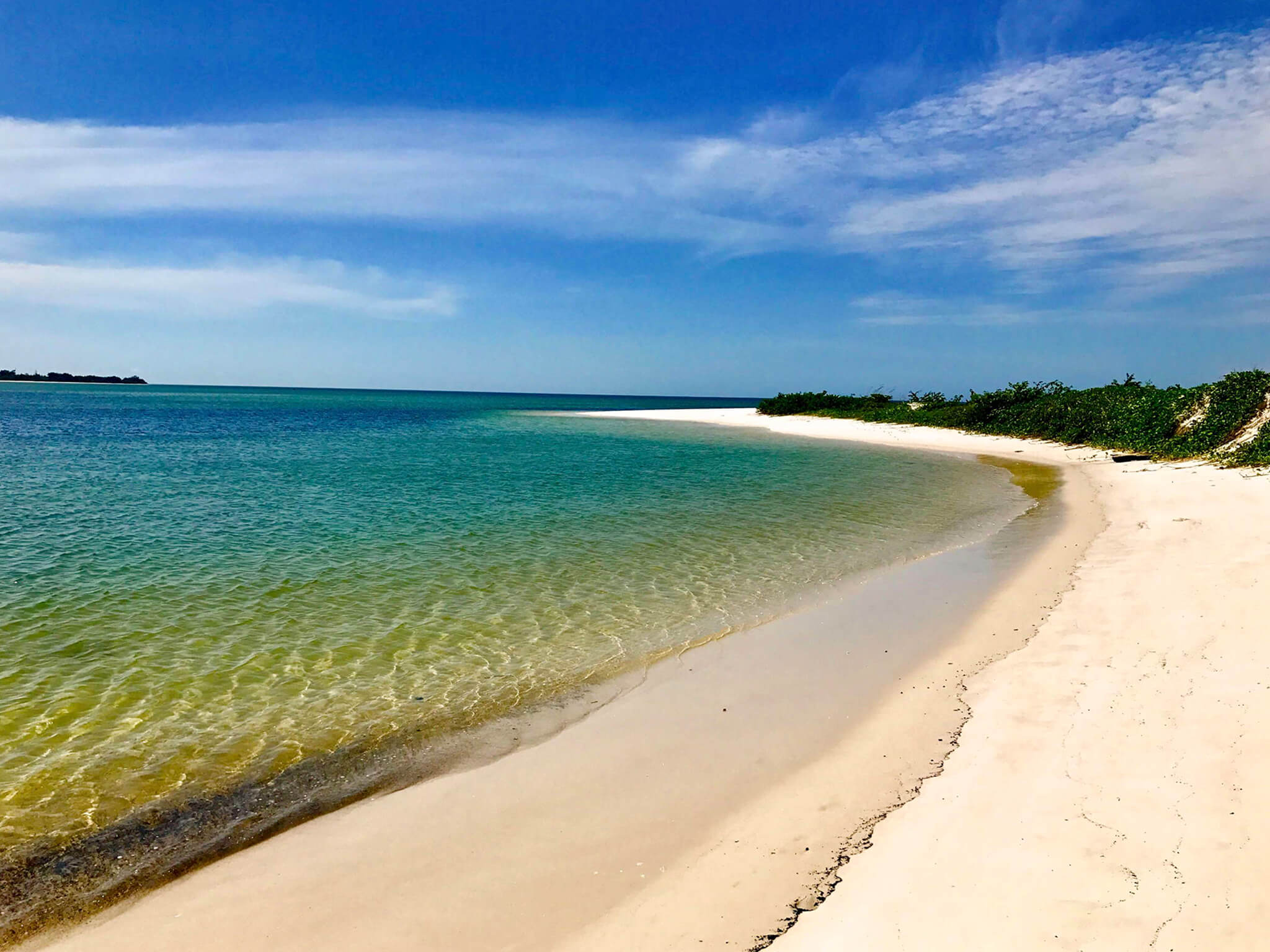
Pointe Denis
On the other side of the Gabon estuary, in front of Libreville, Pointe Denis is a true Eden, with its superb stretch of sand bordered by forests and crystal clear waters. It is the favourite seaside resort of the locals, who like to spend the weekend enjoying sunbathing, walking along the lagoon or having fun with water scooting and quad biking. On site, a few hotels and restaurants will allow you to extend the pleasure for a day or two, and live in harmony with nature. The place is known to be the breeding place for leatherback turtles. Come to see this incredible natural show on the preserved beach! After the bustle of the city, it is nice to take a break and enjoy the tranquillity of a perfect vacation spot.
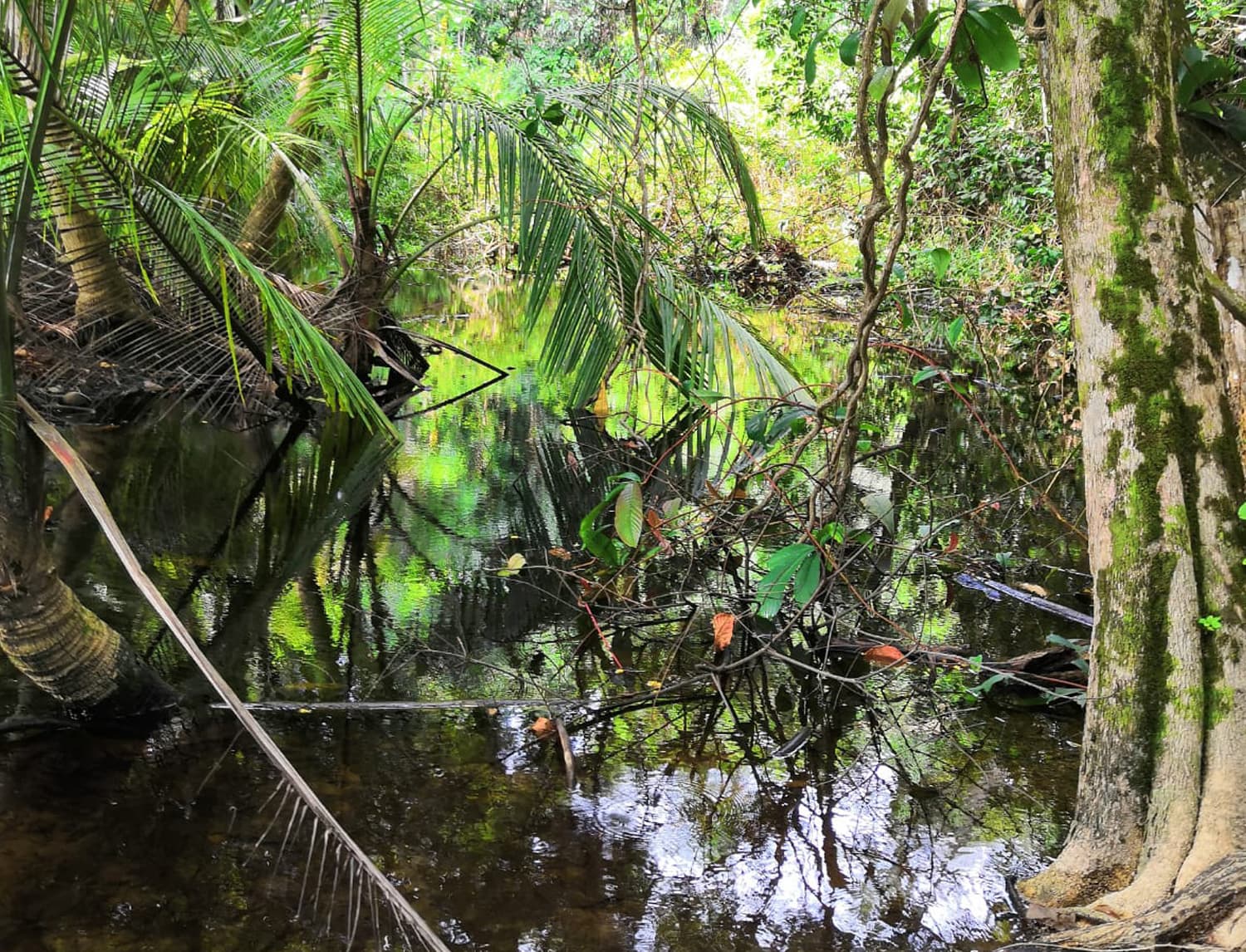
Akanda National Park
With its 540 km2, Akanda National Park covers a quite small area compared to the others national reserves of Gabon. Nevertheless, it offers a great richness in terms of fauna and flora. Come and observe the thousands of migratory birds that fly over the park and land briefly before going on other adventures. Pelicans, Dominican gulls and black-headed gulls travel from one hemisphere to another according to the seasons. The site is also known for its species of swallows and ospreys; they are fond of small crabs that leave along the beach. Akanda Park extends northeast of Libreville. It is incredible to think that in a few minutes by car, you can move from the city’s bustle to a protected land covered with a mangrove forest. In Mondah Bay, you can even see manatees! The site contains unique plant species such as orchids that only grow in very wet environments. Discover this protected territory, a stone’s throw from the capital.
